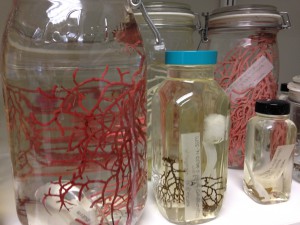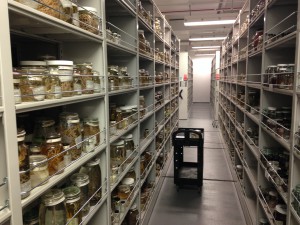
Last month, NCCOS Charleston staff transported a collection of 228 deep-wateroctocoral samples to the Smithsonian’s National Museum of Natural History, MuseumSupport Center in Suitland, Maryland, and aided in the transfer of the samples to permanent containers.
All of the samples were collected onreefs in the mesophotic zone (100 -500feet deep) in the Northern Gulf of Mexico as part of the Natural ResourceDamage Assessment for theDeepwater Horizon oil spill. NCCOS staff collected these samples in 2010, 2011, and 2014 for the purposes ofspecies identification and injury assessment and reported their results in a recent article in Coral Reefs .Thecollection included several octocoral species identified for the first time in this region of the Gulf of Mexico (as well as a few range extensions) and a potential new species of Nicella.

The National Museum of Natural History’s collection is unparalleled and draws visitingresearchers from across the globe. NCCOS’s donation of these samples marks a valued additionto this collection, which will be available for continued research and investigation by the public.To learn more about the Smithsonian’s specimen collection, visit their website or collectionsdatabase.
For more information, contact Peter.Etnoyer@noaa.gov.
